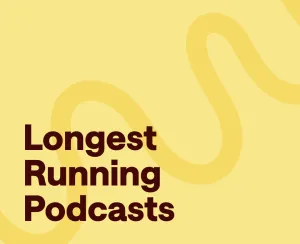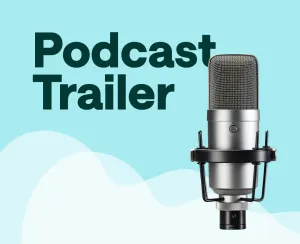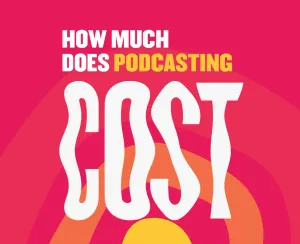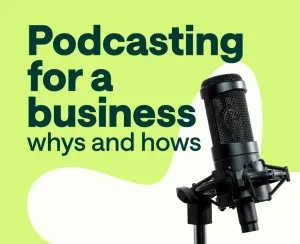Still looking and not finding what you need for your next episode? If the content for your podcast is lacking, these tactics might be what you’re missing!
Your podcast is the place where you can express yourself freely, exploring your creativity and simultaneously sharing it with the world. But sometimes, it seems like you’ve run out of all your great ideas, or the ones you have don’t seem as great anymore. So to get your creative juices flowing and spice up the content for your podcast, you need to know where to look for inspiration. For starters, it’s good to have another look at some of your favorite creators on YouTube, Tiktok, or any other platform that isn’t necessarily connected to podcasting.
The chances are high that you’ll stumble upon exciting material that can serve as a potential topic for your future podcast episode.
It’s important to analyze what exactly catches your attention so that you can include it in the content for your podcast. But if even then, you find it difficult to come up with new ideas, here are a few tips from Podcastle:
Do your research
No good work is done without proper research. No matter if your content is informative or entertaining, to truly provide quality work you need to spend some time looking at what others have done before you. This would help you to be a part of the collective discourse and provide a truly innovative approach to the topics you’re dealing with.
So start by researching the field in which your show operates. For instance, if you’re doing a cinematic podcast where you focus on the Golden Age of Hollywood, go and find some of the old reviews of the films, explore what critics wrote about them, and understand the historical context. This would help you to give way more insightful content to your audience, helping you to stand out in the competition.
Talking about competition, be sure that you also are aware of the other podcasts of the same genre. Find the popular cinematic podcasts and try to understand their strong and weak sides. What is the structure of the show or how does the host maneuver through the different topics? This all would help you to understand how to conduct your own show, and what to focus on.
If you spend a couple of hours researching, it is inevitable that you come up with an interesting idea that you could develop and turn into a podcast episode!
Talk to people
Look in places where you wouldn’t normally look. Without communication, you will not be able to look past your information bubble. Talk to people you wouldn’t normally approach. Let’s say you need to write a travel podcast, but haven’t really traveled. The internet will not be enough, you will actually have to expand your comfort zone. Ask them about their experiences and how the latter affected their current lives. Talk to real people, get real opinions, and, why not, invite some of your interviewees to your show.

Follow the news
Now, we get it. You might be doing a comedy podcast and it might not make sense to you why following the news is so essential for your podcast content. But trust us, no matter what the genre of your podcast is, news can be a good source to find useful content for your show.
Let’s assume that you actually are a host of a comedy podcast. One day you wake up and find out that there has been an interesting political incident that everyone seems to be discussing. Of course, your show is not about politics: it’s all about making people laugh. But it does not mean that you can’t take this piece of information and add a comic approach to it. This way, you would tell the news in a more fun way, which your audience would certainly appreciate.
At the same time, the news you follow could be related to the field of your podcast. If it is a comedy show try to understand what goes on in the comedy world. Any new standup artists that are worth checking out? Let your audience know!
Get specific
Depending on the theme of your podcast, it might be a good idea to conduct surveys and get exact answers to your questions. Other than showing your audience that you’re willing to put in the extra effort, you will get data to back up your point or maybe even come across conclusions that don’t line up with your initial stance. Whatever the outcome, you can always use surveying to your advantage.
There are loads of platforms you can use for the latter; SurveyPlanet, SurveyKing, SurveyMonkey or GoogleForms are a good starting point. You can get full sentence responses, have yes or no questions, but remember not to overwhelm your potential respondents. Let’s be honest, most people have a hard time filling in even mandatory surveys, not to mention your research questions. So try to make it as fun and simple as possible letting them know about the impact or the results that you’ll achieve with the survey. Once you collect your information, other than including it in your podcast you can also share it on your social media. You audience would sure love to find out the results of something they partook in and those who didn’t might feel encouraged to participate in your next survey.
Proper research goes a long way. While it’s good to gather different perspectives and as much background information as possible, you shouldn’t dwell on it too much. It’s completely fine to not know everything about the topic you’re going to discuss,. What’s important is staying open-minded and leaving room for discourse and new opinions, whether it’s an interview with a guest, or your comments section.










